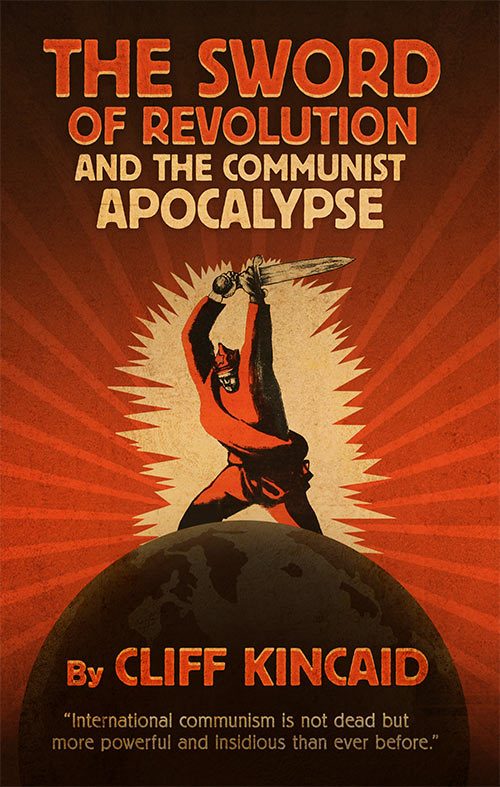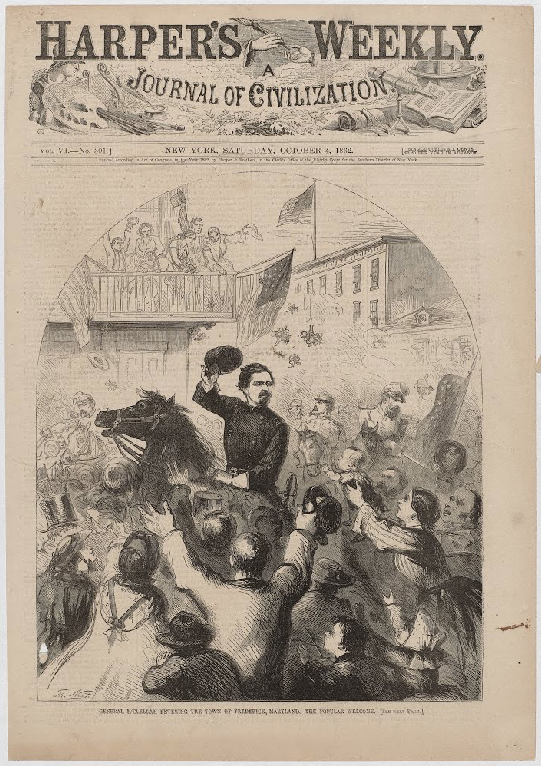By: Cliff Kincaid
Accuracy in Media

The dreaded so-called “surveillance state” was held in contempt by many in the media until President Obama announced that he would extend it to police officers. All of a sudden, the idea of the National Security Agency (NSA) targeting the thin blue line between the public and the criminals became a great, “progressive” idea.
Obama euphemistically calls it the “Body Worn Camera Partnership Program,” and insists it will “help strengthen accountability and transparency.”
Perhaps these body-worn cameras ought to be used by high-level government officials, in order to sniff out corruption such as the location of missing IRS emails.
Obama bases his policy on the idea that “officers and civilians both act in a more positive manner when they’re aware that a camera is present.” In other words, in an unprecedented move, Big Brother is going to be watching the police so that the Department of Justice can more easily monitor and prosecute police officers for alleged misconduct.
The catch is that Big Brother can also use the cameras to monitor the people, and that could be against the laws of various states. It would represent a potential violation of the Fourth Amendment, supposedly held sacrosanct by “privacy advocates” on the left and the libertarian right.
Nevertheless, liberal Washington Post reporter Nia-Malika Henderson calls it “technology to prevent more Fergusons,” and “something plenty of people with very different views of what happened could agree upon.”
In fact, a body worn camera in Ferguson would have recorded what witnesses testified to—that Michael Brown attacked Police Officer Darren Wilson in his patrol car and tried to take his gun.
Trying to change the subject to the latest so-called outrage for the cop-hating media, she insists, in a knee-jerk response, that “the videotaped death of [Eric] Garner and the failure to get an indictment will likely be used by activists to push for much more than just cameras.”
Those “activists” are typically on the left and opposed to surveillance when it is directed at them.
The video of the Eric Garner police takedown in New York City, which has been replayed over and over again, was not able to indicate how much of a role Garner’s various health problems, including obesity, asthma and heart disease, played in his death. The video did show that he was resisting arrest while claiming, “I can’t breathe.”
Garner was a career criminal with 31 arrests. Before being taken down, he challenged the officers, saying, “I’m tired of it. It stops today.”
On the www.PoliceOne.com website, where police officers can comment on cases anonymously, the reaction (edited for the sake of brevity and clarity) has included:
- Garner was taken to the ground by his head and neck. This was NOT a choke hold where he was held for a long period of time and lost consciousness. This man clearly had health issues that contributed to his untimely death. Sorry this man passed away on a day where he simply could have put his hands behind his back and taken his 32nd arrest.
- This man most likely died from a heart attack and shock. The headlock did not kill this man. NYPD officers were doing their job.
- If you can talk you can breathe! A strong and deadly choke hold would not allow a person to talk. Clearly this subject unfortunately had underlying health issues, no doubt brought on by lifestyle choices.
- Anytime a person says, “I’m tired of it. It stops today,” that will almost always end with the use of force. He made that decision, not the police. The police must affect the arrest and rise above any resistance.
Obama’s proposal for federal monitoring of local police agencies is part of a “community policing initiative,” which will include “more resources for police department reform.”
In their zeal to monitor the police, however, the proponents of the cameras have failed to take into consideration the fact that, according to the National Institute of Justice, “federal law blocks the warrantless capturing of photo or video images of people where they have an expectation of privacy, and most states have similar laws.”
In other words, how can you monitor the police without monitoring the civilians at the same time?
A 2014 federal study, “Police Officer Body-Worn Cameras: Assessing the Evidence,” reports that the Seattle Police Department “determined that use of body-worn cameras would violate Washington state law” against audio recording of private conversations without the consent of those involved.
The report also notes that body-worn cameras “capture in real time the traumatic experiences of citizens” who are “victims of crime, who are involved in medical emergencies and accidents, and who are being detained or arrested.” It said, “Recording these events may exacerbate citizens’ trauma.”
What’s more, the cameras represent “a wide range of potential health and safety concerns [for police officers], from neck injury resulting from the weight of the camera to electrical shock.”
The federal study said, “Skeptics have also suggested that citizens, including witnesses and confidential informants, may be less willing to provide information to police, knowing that the encounter is recorded and can be viewed by others later.”
But none of this seems to matter to the pro-Obama media, which are eager to stampede Congress into approving funds for a new federal program that puts local police under more federal control.
After all, Max Ehrenfreund of the Post reports that Obama is only trying to “help” local police departments “to record interactions with the public.” That sounds mighty nice.
And if local police agencies don’t want to be part of the federal scheme, don’t worry. He notes that, after Michael Brown’s death in Ferguson, Senator Claire McCaskill (D-MO) “proposed making cameras mandatory for any police agency receiving federal funds.”
McCaskill is one of the senators (along with Republican Rand Paul of Kentucky) who rushed to judgment on the alleged militarization of police, warning that the police had too much firepower to cope with criminal elements bent on riots, destruction, and looting.
After businesses in Ferguson started burning to the ground and the police pulled back from well-organized, communist-led mobs, they seemed to abandon their crusade to disarm the police.


















